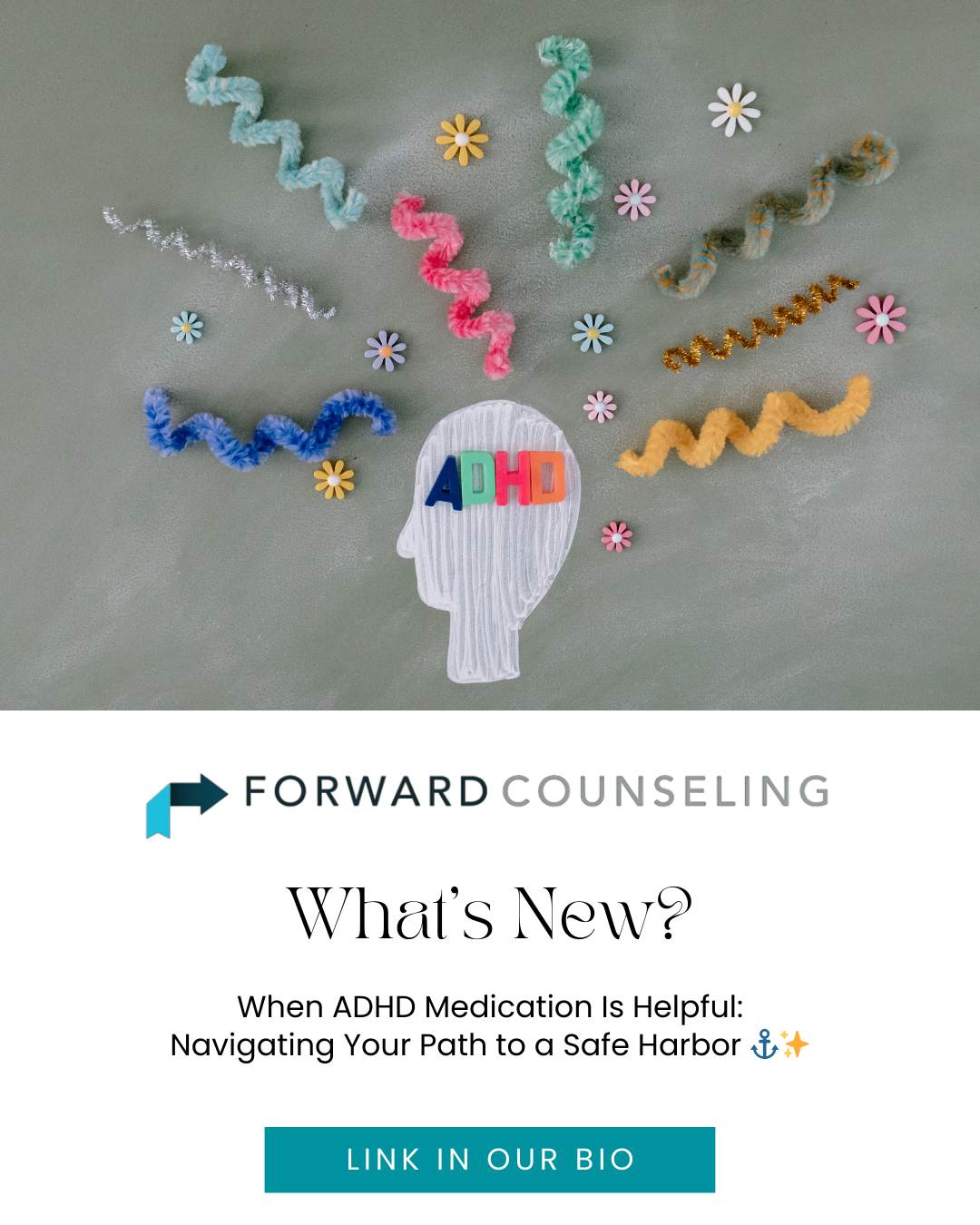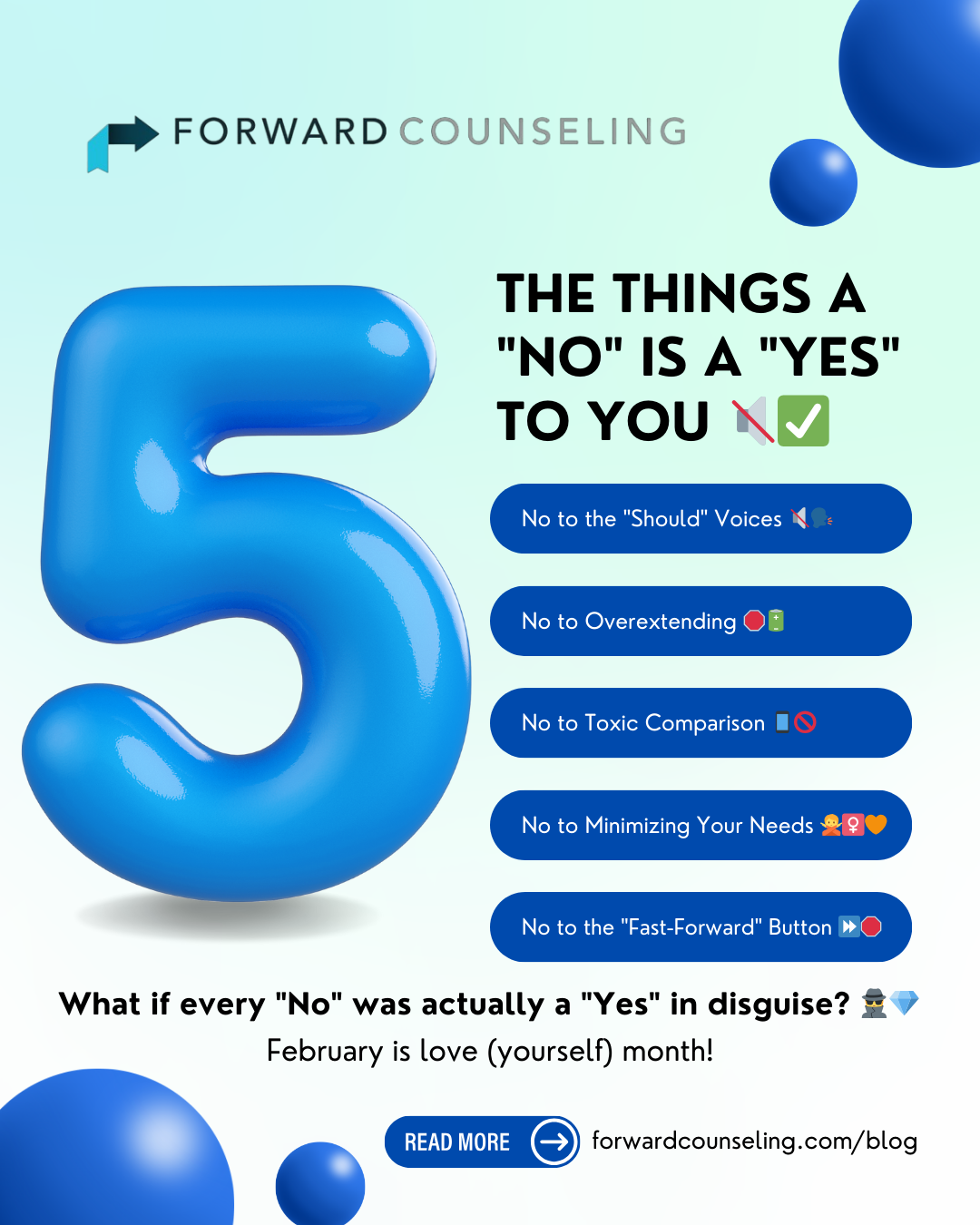Ascend: A Journey to Wellness with William Richardson, LMSW
/Get ready to connect with the newest provider at Forward Counseling! 🎉 William Richardson, LMSW, is here to guide you on your journey to healing, bringing a compassionate and engaged approach to mental wellness.
Originally drawn to the field by a knack for listening, William transitioned from nursing to social work, finding his passion in psychotherapy and psychology. His approach is holistic and collaborative, viewing mental health as an outcome of your internal system's response to external life circumstances. He believes in working with you to identify contributing factors and find practical solutions.
He's ready to bust the myth that a therapist's job is to tell you exactly how to live; instead, he sees it as a partnership to help you figure out the best path forward! ✨
Join our Q&A session with the newest provider at Forward Counseling and discover how William Richardson can help you on your healing journey.
1. What inspired you to become a mental health therapist, particularly an LMSW?
I was originally a nursing major, but I quickly realized that it wasn't the field for me. Growing up, I was told that I was good at listening to others and asked if I had considered becoming a counselor. I joined the social work program at the recommendation of a good friend going through the program and found that I greatly enjoyed the fields of psychotherapy and psychology. I decided that I enjoyed the clinical aspects of social work and that I wanted to become a mental health clinician.
2. You utilize a variety of therapeutic approaches, including psychosocial, cognitive, and solution-oriented styles. Can you explain what these mean for a client and how they work together in your practice?
I believe that mental health is primarily a product of your internal system’s response to external circumstances. Therefore, it’s important to take a holistic approach and consider both internal and external forces that might be causing issues when it comes to therapy. Through this approach, I believe I am better able to help clients identify the factors that are contributing to their problems and figure out practical solutions through the field of psychotherapy.
3. Anxiety and depression are your primary focus. What are some early signs that someone may be struggling with these issues, and how do you help them develop coping skills?
It’s important to note that both anxiety and depression are episodic in nature, meaning they ebb and flow in nature. Everyone experiences anxiety and depression at some point in life, but the intensity, frequency, and presentation vary from person to person. Anxiety often presents as worry that may result in avoidant behavior in stressful situations. Depression typically presents as more of a negative view of yourself, others, or your environment that may cause you to have a loss of interest or satisfaction in your day-to-day living. You may find that you have a problem with either of the two, based on how disruptive they are for you, and if you have made attempts to manage them but have repeatedly failed to effectively manage them.
4. For couples therapy, you use the Gottman Methodology. What are some of the key principles of this approach, and how does it help partners with emotional reconciliation?
I think a good way to describe the Gottman Methodology is based on their principle of the “Sound Relationship House”. There are certain steps that come before others to build a healthy marriage/romantic relationship, just like there are certain things that are required before others when building a house, such as framing the house before installing a roof. I would summarize these principles into the knowledge, behaviors, attitudes, and meanings that you have towards and elicit with your spouse or partner, which create a healthy and sustainable relationship.
5. In EFT, what are the key ways partners truly deepen and strengthen their relationship?
Emotionally Focused Therapy (EFT) is a therapeutic orientation that asserts that couples can create a healthier relationship through emotional reconciliation between each other. Oftentimes, couples will face issues that may stem from emotionally charged perspectives. EFT, in addition to the Gottman methodology, is focused on how couples can go about working through those emotionally charged issues and create a system of understanding and connection between couples.
6. What unique challenges do these age groups face today, and how do you support them?
Statistically, younger millennials, Gen Z, and younger are experiencing higher rates of anxiety and depression. I believe this could be due to a number of different factors, such as social media and the enormous amount of information many people receive and have to decipher on a daily basis, changes in socioeconomic factors, and a more isolationist culture than we have experienced before. I want to help these individuals to find the needed support and make steps to resolving their problems.
7. What is your philosophy on the therapeutic process, and what does it mean to be an "engaged" client in your sessions?
Some individuals may believe that therapy is a passive experience where you go into a therapist’s office and “get therapized,” so to speak. The success of therapy will vary depending on your levels of commitment and participation in the therapeutic process. Some individuals may experience rapid results within the first few sessions, depending on the circumstances, but if you do not, just know that this is normal, and it may take some time before you are able to see and experience positive growth.
8. What are some common misconceptions about therapy that you'd like to address for people who are considering seeking help?
There are a few misconceptions that I can think of from the top of my head. The first is that some people believe a therapist’s job is to tell you exactly what to do and how to live. While a therapist may give clinical recommendations or things to practice at times, ultimately, I see my job as supporting the client in figuring out their problems and how they can be able to approach managing them. It’s a collaborative relationship vs an authoritarian one.
9. Beyond your professional work, what do you do to practice self-care and maintain your own well-being?
I find that having a strong network of people whom I am able to interact with and who have my best interest at heart is extremely important for well being. Additionally, focusing on what I can do now versus what is outside of my control is helpful for me to realize my limits and have a sense of self-agency and responsibility in doing the best that I can. I also find that taking occasional breaks and engaging in an activity that is not stressful helps to better endure through stress, since, at the end of the day, we are all human and can become overwhelmed from time to time.
Come discover how William's dedication and comprehensive skill set can make a difference in your life!
He is ready to support you in-person and virtually!







